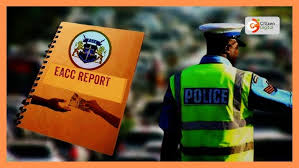Five of Kenya’s largest ethnic communities continue to dominate government employment opportunities, holding more than more than 70 percent of all State corporations.
A new report by the National Cohesion and Integration Commission (NCIC) reveals that the Kikuyu, Kalenjin, Luo, Luhya, and Kamba communities control majority of senior government jobs, leaving little room for representation among other 38 ethnic groups.
The commission warns that the growing ethnicity in public sector recruitment poses a serious threat to national unity and social cohesion.
The report released as the term of the NCIC’s current commissioners comes to an end has raised alarm over the persistence of ethnic dominance in Kenya’s parastatals, painting a grim picture of inequality despite years of diversity reforms.
NCIC Commissioner Danvas Makori said: “What is shocking is that 8 communities out of 46 control almost 90% of the jobs”
According to the 2025 ethnic and diversity audit, these five communities, alongside the Kisii, Meru, and Mijikenda, occupy an overwhelming 88 percent of all positions in State corporations, leaving just 12 percent to be shared among 37 minority groups.
KijaniMatch helps you build cleantech partnerships with Estonian companies that share your vision – backed by free expert advice.
“Moi Teaching and Refferal Hospital is absolutely non-compliance by far...with 67%,” Makori added.
NCIC Chairperson Samuel Kobia said: “There has been a clear demonstration that we don’t have equitable distribution of opportunities.”
Several government institutions have also been flagged for the imbalance. The report citing political patronage as a key driver of the biased hiring patterns, revealing that the same eight communities control 86 percent of all CEO positions.
Notably, the Kikuyu, Kalenjin, Luo, and Luhya alone account for nearly two-thirds of top leadership roles.
“I'm not against phone calls but call on behalf of wanyonge pia...sio tu watu wakubwa,” said Makori.
The audit also exposed a glaring gender gap with 62 percent of employees in State corporations being men, while women hold just 22 percent of CEO positions, far below the constitutional two-thirds gender requirement.
Public universities have not been spared either. The NCIC report reveals that the same five dominant communities control 85.7 percent of all university jobs, leaving the remaining 38 ethnic groups to share less than 15 percent of opportunities.
The Kikuyu community leads with 22.9 percent representation, followed by the Kalenjin at 15.7 percent, Luo at 15.6 percent, and Luhya at 15.4 percent.
“Where there is no compliance, we launch ethnic audit…even in counties,” noted Kobia.
The commission warned that the ethnic favouritism and gender imbalance in public employment threaten to erode national unity and social cohesion if not urgently addressed. By Ben Kirui, Citizen Digital






